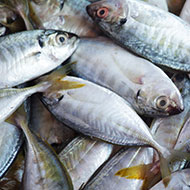
Study to inform possible move towards commercially-viable stunning.
A researcher from Harper Adams University has been awarded £166,000 from the Humane Slaughter Association (HSA) to fund a study into the welfare of wild-caught fish.
Dr Nicola Randall, director of the Centre for Evidence-Based Agriculture, will use the money to carry out a global review into the humane capture and slaughter of wild fish caught commercially for food.
Her findings will help to inform an analysis of which fishing system, species of fish and geographical fishing area are most suitable for the adoption of commercially viable stunning.
Dr Randall explained: “We will use a systematic mapping technique to provide an overview of available evidence and to identify gaps in knowledge. This ‘systematic mapping’ technique follows structured predefined methods to reduce bias, and increase the transparency of our work.
“It enables us to sift through, summarise and evaluate multiple pieces of, sometimes conflicting, evidence to build a holistic picture. The findings are then presented in a way that is designed to enable the HSA and other users to easily use the research to inform their decision making, and prioritise areas for future research.”
The grant forms part of HSA's ongoing support to encourage the development and adoption of humane slaughter methods for fish. Billions of fish are caught for food every year, of which the vast majority are not stunned before slaughter and may experience significant suffering, it said.
HSA CEO and scientific director Dr Huw Gollegede explained that the research forms part of HSA's plan to explore the possibility that wild-caught fish might be humanely stunned in a similar way to many farmed fish.
“The sheer scale of the wild-capture fishing industry, combined with an almost complete absence of humane stunning, makes this one of the major animal welfare issues globally,” he said. “The study we are supporting will rigorously and systematically examine the current evidence base so that we can decide what future work is needed to move towards routine stunning of wild-caught fish."



 The RCVS has announced a new version of its 1CPD mobile app, with enhanced features for veterinary surgeons and veterinary nurses to record their continuing professional development.
The RCVS has announced a new version of its 1CPD mobile app, with enhanced features for veterinary surgeons and veterinary nurses to record their continuing professional development.